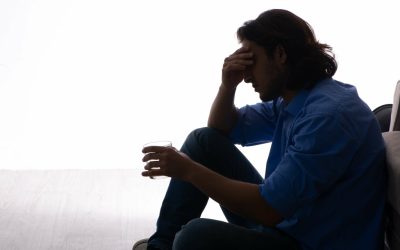Activities that foster co-regulation—where nervous systems respond to each other in a safe and supportive way—help people feel calm, grounded, and resilient. And allows them to show up more connected, trusting, and grounded during the workday. And while there’s nothing inherently wrong with sharing a drink with coworkers, it’s time we reconsidered what’s become a default setting for relaxation, networking, and bonding. While HR can establish codes of conduct employees must abide by, there will still be limitations on all employee actions outside the workplace. If a circumstance of this nature were to arise, it should be addressed and handled by HR. According to a new study conducted by American Addiction Centers and Alcohol.org, the average American worker spends more than $3,000 per year on after-work drinks.
- Meanwhile, 15% said they prefer non-alcoholic options like mocktails or zero-proof beer.
- Why does an alcoholic continue to drink despite the known facts about the disease and the obvious adverse consequences of continued drinking?
- A work-related group environment is not the greatest place to ponder your personal issues, use foul language or make anyone feel awkward.
- This discrepancy highlights how divided workers have become in their after-work.
- As awareness grows, there is an increasing call for more inclusive, alcohol-free workplace activities that cater to all preferences.
What are your bar’s rules regarding employees and drinks after their shift?
Many people are uncomfortable if they drinking after work have a night without a drink, mistakenly believing that it helps them to de-stress and switch off from their working day. Alcohol acts as a depressant on the brain and central nervous system, slowing your heart rate and breathing. Regular drinking also lowers the levels of serotonin in your brain, a chemical that your body uses to regulate mood. So whilst in the immediate glass of wine after work might make you feel relaxed, in the longer term it has the adverse effect.

The Signs and Effects of Drinking at Work (And How to Address Them)

This defense is not always straightforward, as drug addiction treatment some jurisdictions require proof that intoxication was the sole cause of the injury. If other factors contributed, such as an unsafe condition, the claim might still be approved. The workers’ compensation system covers injuries that “arise out of and in the course of employment.” An injury sustained while drinking at work after hours presents a complicated scenario. Whether the injury is compensable depends on the employer’s role in the event.
- While there are other methods of testing for alcohol, including blood or saliva tests, an EBT is the predominant method because it is less invasive and is already in use by law enforcement personnel.
- Regular drinking also lowers the levels of serotonin in your brain, a chemical that your body uses to regulate mood.
- Regular after-work drinking can take a toll on our physical well-being, impacting various aspects of our health.
Impact on Coworkers
- To set effective alcohol boundaries, it’s essential to understand your motivations for wanting to drink less.
- Those who work in construction or manual labor tend to abuse alcohol much more after work.
- Bartenders, liquor store employees, authors, food critics, beverage testers, and media professionals involved in advertising alcoholic brands are some occupations which permit or consist of alcohol drinking.
- Socially, habitual after-work drinking can lead to irresponsible behavior, strained professional relationships, and impaired work performance.
Early treatment is simply less disruptive to the workplace and can help the employee avoid further misconduct and poor performance. If an alcoholic employee doesn’t’t get help until very late in the disease, there may have been irreparable harm done to the employee-employer relationship. Regular after-work drinking can take a toll on our physical well-being, impacting various aspects of our health. When it comes to the effect on sleep patterns, alcohol consumption can disrupt the delicate balance necessary for a good night’s rest. While it may initially induce drowsiness and help you fall asleep faster, the quality of sleep is compromised. Alcohol interferes with the normal sleep cycle, preventing you from reaching the deep, restorative stages of sleep.
